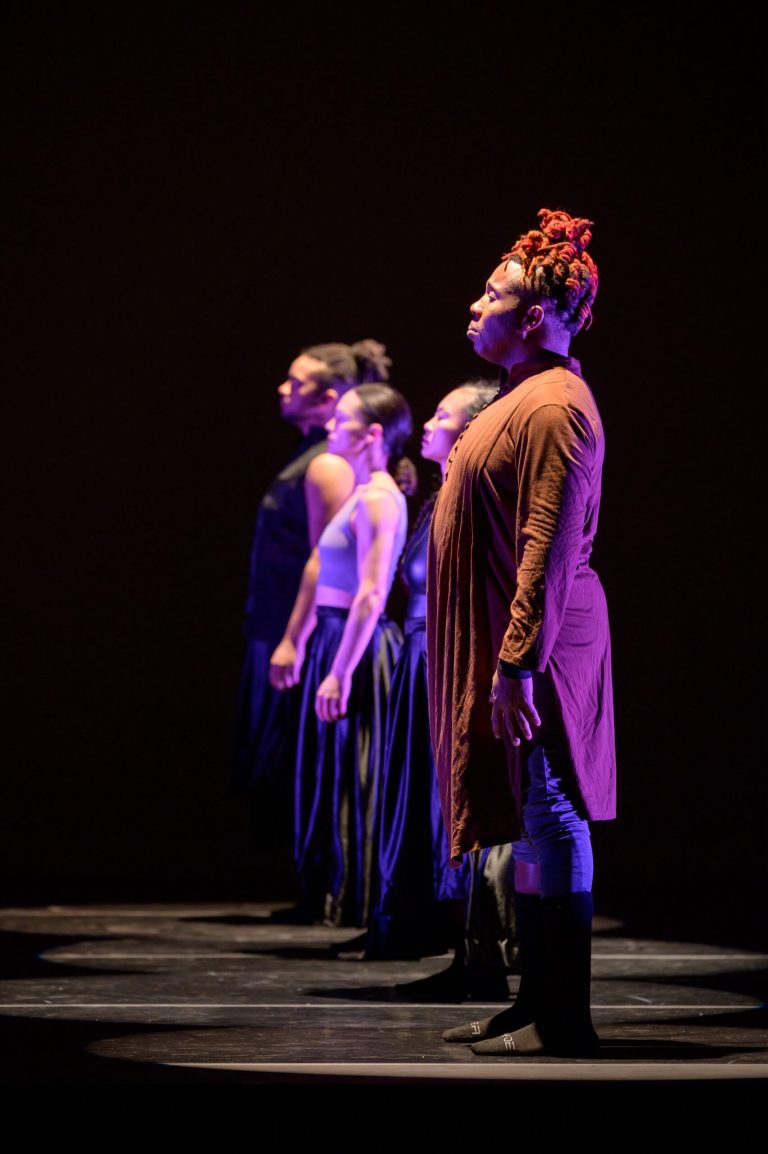ERIN GANNON ’19
A&E EDITOR
This past Sunday, Apr. 10, marked the end of the 20th Annual Mandell Jewish Community Center (JCC) Hartford Jewish Film Festival. Each day of the ten-day-long festival coincided with a theme, with the final day’s being a tribute to “Observations on Survival and Spirit—Lessons from the Holocaust”. The closing night of the festival featured a screening of Pierre-Henry Salfati’s 2014 German film, Der Letzte Mentsch (The Last Mentsch) and a talk following the screening featuring Trinity’s own Professor Samuel Kassow, who is presently on sabbatical from teaching at Trinity, regarding the upcoming documentary based on his book Who will write our history?.
Der Letzte Mentsch tells the fictional story of an Auschwitz survivor, Marcus Schwartz (Mario Adorf), who dealt with the trauma he faced during the war by creating a new identity for himself in post-war Germany. At a funeral for a fellow Jew, he realizes that his new identity along with the fact that he is “the last man” left in his family means that he will be unable to have a proper Jewish burial. Needing documents or testimonies proving his religious authenticity, he embarks on a journey to Hungary, where he was born and raised before the war. A young Turkish-German woman seeking self-fulfillment, Gül (Katharina Derr), accompanies him on his journey, during which the two develop a strong familial-like bond.
Though fictional, the film sheds a heart-breaking light on the increasingly prevalent issue that is the dwindling number of Holocaust survivors alive today. It raises questions directed toward the younger generations of scholars as to what should be done to preserve the memory of Holocaust survivors now and in the future—an issue raised by Kassow in his book Who will write our history?.
When Kassow first began his career as a historian, he made a vow to himself to avoid Holocaust history at all costs. “I would have nothing to do with Holocaust history,” he said. “I just wanted to put it out of my mind—I wouldn’t even go to lectures about the Holocaust.”
Born in a displaced persons camp in post-war Germany to two Holocaust survivors, Kassow’s life was profoundly impacted by the aftermath of the genocide he was born into, hence his avoidance of the topic once his career picked up. As his parents passed away in the mid-1990s, the issue of preserving Holocaust memory became tangible to him. “I began to understand that with the survivors gone, who would write their story?”, Kassow said.
In 2007, Kassow addressed this issue in his book Who will write our history?: Rediscovering a Hidden Archive from the Warsaw Ghetto. Kassow’s research on the Polish historian Emanuel Ringelblum and the organization he created, the Oyneg Shabes, to secretly archive the lives of thousands of Jews whose lives were forever destroyed by the Holocaust. Kassow believes that “had you not had something like the Oyneg Shabves archive, the history of the Holocaust could only have been written from the point of view of the perpetrators.”
The book is being adapted into a documentary film of the same title that is to be released in 2017, and is directed by Roberta Grossman and executively produced by Nancy Spielberg, Steven Spielberg’s sister. Kassow commented that the story is being reproduced with difficulty by Grossman, as of the thousands whose lives were recorded in the archives, only three survived the war. Those three had all passed by the time Kassow had begun writing his book.
To counter this setback, Grossman has become creative. “She’s making a terrific film using recreations, Emanuel Ringelblum’s diary, and the diary of one of the three survivors,” Kassow said. “The actors playing the roles are very talented. I’ve seen a lot of outtakes of the movie now, and I think it’s done with a great deal of taste and sensitivity, and that it will be a great historical contribution.”
Kassow’s book turned documentary is just one of the many ways in which he is attempting to accurately preserve the memory of the Holocaust. He fears the dwindling number of Holocaust survivors will lead to inaccurate Holocaust studies in the future. “In this age of political correctness and packaged thinking, especially in academia, the Holocaust is going to be distorted to a greater and greater degree. One of the great fads of today is to find slogans which serve as a convenient substitute for thinking,” Kassow said. “I heard a couple of weeks ago at Oberlin College the Holocaust referred to as ‘white on white crime’, and I think we’re going to have more of that as survivors pass away.”
Kassow believes the responsibility of accurate preservation is in the hands of modern Jews. As the Holocaust becomes universalized, Kassow believes “Jews really have an obligation to take it seriously and study it. When other people stop caring and start using it for their own ends, Jews have to recognize their responsibility to not forget.”
Both Kassow and the Hartford Jewish Film Festival make it a point to emphasize the importance of keeping the memory of such an important period in history alive and accurate. People like Emanuel Ringelblum, who worked so hard to build an extensive record, are who Kassow feels modern Jews should emulate in their studies of the Holocaust. “People like Emanuel Ringelblum understood that if you leave documents, if you leave something behind you, if you leave traces—then they can’t erase your memory,” said Kassow. “They can kill you, but they can’t destroy the memory of who you were. Thanks to individuals like Emanuel Ringelblum, the people who were killed are not remembered as just faceless, anonymous victims, but rather as individuals with names, with a past with a culture.”
Friday, February 21 2025
The Student Newspaper at Trinity College in Hartford, Connecticut



+ There are no comments
Add yours